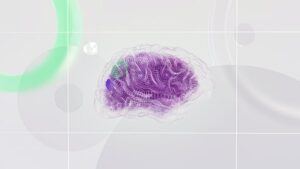Many of the clients I’ve worked with to treat their depression come to me feeling guilty and ashamed of their struggles with it. They have a sense of it as a personal or moral failure. They often feel as if they should be able to power through sheer force of will.
On the contrary, depression is a result of the impact of our life’s experiences on the development and function of our brain. Our brains adapt and change throughout our lives in conversation with the world around us.
Today, we’re going to roll up our sleeves and get our hands dirty digging into how depression affects our brains. As we do, it’s important to remember that with the right tools and techniques, these changes can be mitigated and healed.
Physiological Changes
There are several physiological changes that accompany depression. Various regions of the brain shrink in response to prolonged bouts of depression. Over time, the hippocampus shrinks, leading to a drop in the production of neurons, and changes how memories are formed and retained. Reduction in the hippocampus can lead to challenges with learning, sense of direction, and emotional regulation.
Similarly, the prefrontal cortex and amygdala may also shrink in response to depression. A loss of function in the amygdala could lead to issues managing and expressing emotion, as well as taking joy in personal achievements and things that once interested you. Alternately, some people may experience an increase in the size of their amygdala—which can lead to increased anxiety and be a sign of hypervigilance.
In many cases, depression is linked to traumatic experiences—and in fact, traumatic or stressful experiences can cause many of the same changes in brain function that are seen in people who suffer from depression. In this way, it may be helpful to think of depression as a kind of defense mechanism that your body has enacted to dull the sharp edge of painful emotions.
This doesn’t mean you’re broken—it means that your body has changed to avoid pain in an attempt to keep you safe.
Changes in Memory
As a result of the physiological changes to your brain, you may find yourself struggling with tasks that once seemed easier. It can be harder to stay focused and take care of chores that need doing around the house or meet deadlines at work. People who suffer from depression sometimes find they’re more forgetful, absent-minded, and struggle to maintain attention during conversation.

Lack of Interest and Satisfaction
In addition to some of the changes above, another hallmark of depression is the loss of satisfaction and enjoyment from pleasurable activities. Diminished production of dopamine, serotonin, and norepinephrine makes it very hard to motivate yourself to complete tasks.
Humans are wired to chase after the hit of dopamine that comes with pleasant social interactions, sweet tastes, and accomplishing goals. When the reward system breaks down, it makes even simple tasks seem impossible or pointless. Negative consequences reinforce the depressive lesson our body is learning. As a result, we shut down and feel less.
As above, depression becomes a self-fulfilling prophecy.
Support and Counseling
It’s important to note that our brains are capable of incredible feats of transformation. Our brains are capable of reversing many of the changes brought on by depression. To do so, we have to short-circuit that cycle of depression.
If you’re interested in learning more about how depression affects the brain, please schedule a free consultation. As a therapist, it’s my greatest joy to help guide people through this dark forest to the light waiting at the other end.
